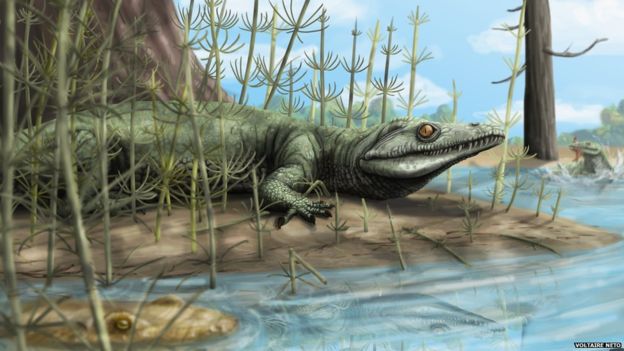A newly discovered 250-million-year-old fossil reptile from Brazil gives an “extraordinary” insight into life just before the dinosaurs appeared.
At the time, the world was recovering from a massive extinction that wiped out most living species, according to BBC.
The reptile, named Teyujagua or “fierce lizard”, is the close relative of a group that gave rise to dinosaurs, crocodiles and birds.
The fossil is “beautiful” and fills an
evolutionary gap, say scientists.
Dr Richard Butler from the University of Birmingham said the animal is a new species that has not been previously known.
“It’s very close to the ancestry of a very important group of reptiles called archosauri forms,” the co-researcher on the study, published in the journal Scientific Reports, told BBC News.
 “It helps us understand how that group evolved.”
“It helps us understand how that group evolved.”
Teyujagua paradoxa was a small crocodile-like animal that probably lived at the side of lakes, feeding on fish.
The ancient reptile lived just after a mass extinction event 252 million years ago that was thought to have been triggered by a string of volcanic eruptions.
About 90% of living species were lost, creating a niche for other animals, such as Teyujagua, to flourish.
The reptile – and its close relatives the archosauriforms – became the dominant animals on land and eventually gave rise to the dinosaurs.
Teyujagua is different from other fossils from the same era.
Its anatomy is somewhere between that of more primitive reptiles and the archosauriforms, which include all dinosaurs and pterosaurs (flying reptiles), along with modern day birds and crocodiles.
H.Z

